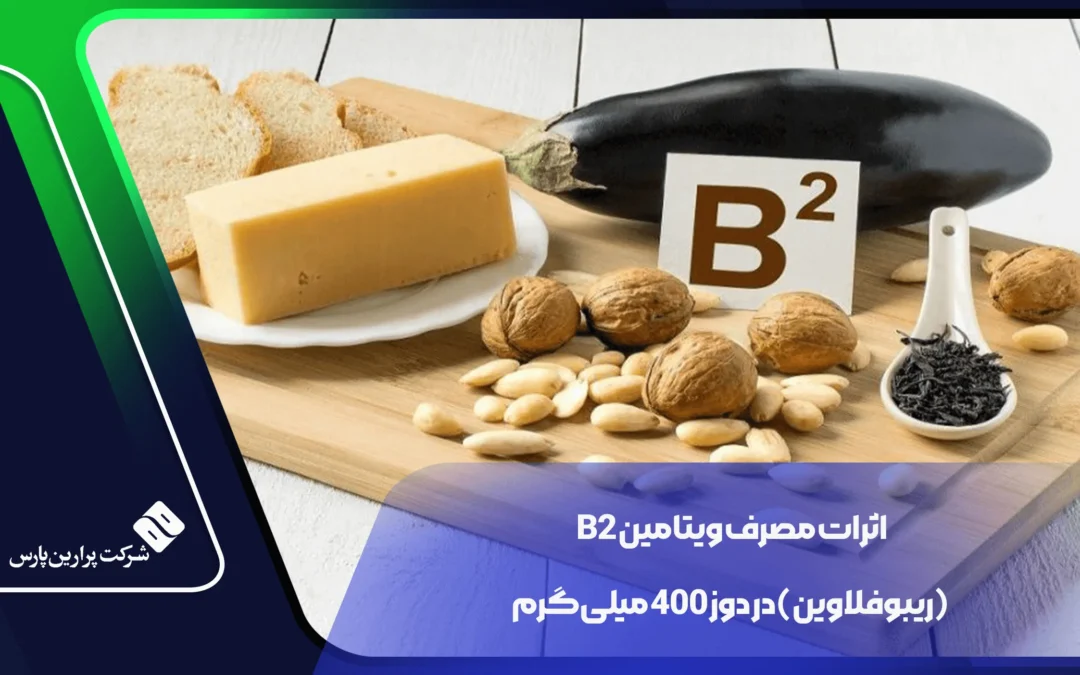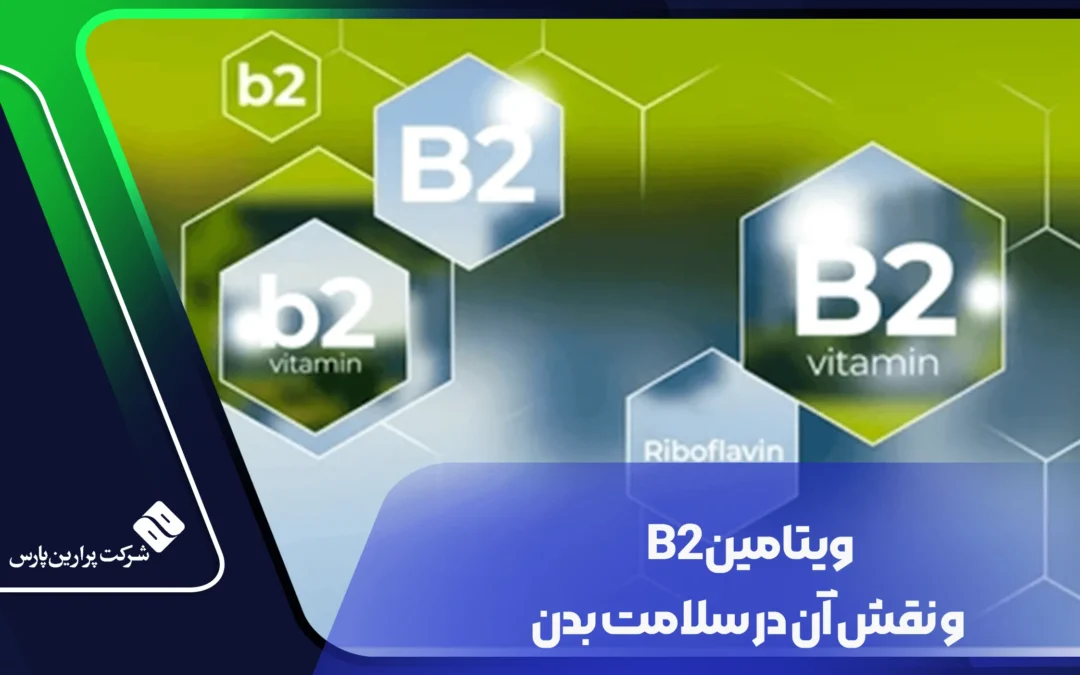
Vitamin B2 and its combination with Glucomannan
Vitamin B2, or riboflavin, is an essential water-soluble vitamin that plays a crucial role in energy production, maintaining digestive health, metabolizing fats, carbohydrates, and proteins, and regulating oxidative stress. This vitamin acts as a coenzyme in metabolic reactions and plays a vital role in the function of electron-transfer enzymes.
Additionally, the simultaneous intake of vitamin B2 with fiber compounds like glucomannan can have synergistic effects due to their unique properties. This combination may enhance digestive health, regulate blood sugar levels, boost energy, and aid in weight management. This article provides an in-depth analysis of the effects of vitamin B2 on metabolism and digestion, the impact of its deficiency, and the benefits of combining it with glucomannan.
The Role of Vitamin B2 in Energy Metabolism
Energy metabolism is one of the body’s most critical functions for ATP production and cellular health. Vitamin B2 plays a key role in this process by acting as a coenzyme in oxidation-reduction pathways.
- ATP Production and Mitochondrial Function: Riboflavin is essential for the synthesis of flavin mononucleotide (FMN) and flavin adenine dinucleotide (FAD), two crucial coenzymes in the electron transport chain that facilitate ATP production in mitochondria. A deficiency in vitamin B2 can impair energy production, leading to fatigue, muscle weakness, and metabolic dysfunction.
- Fat Metabolism and Weight Control: Vitamin B2 plays a significant role in the beta-oxidation of fatty acids, a key pathway for deriving energy from fats. Deficiency in this vitamin may lead to increased fat storage, reduced metabolism, and persistent fatigue.
- Carbohydrate Breakdown and Blood Sugar Regulation: By aiding glucose metabolism and activating enzymes responsible for converting glucose into energy, vitamin B2 helps stabilize blood sugar levels, preventing fluctuations and promoting sustained energy throughout the day.
- Protein Metabolism and Muscle Growth: Riboflavin also plays a role in amino acid metabolism and protein synthesis, making it essential for athletes and individuals focused on muscle-building.
Vitamin B2 and Digestive System Function
Riboflavin is crucial for maintaining digestive system health, and its deficiency can lead to gastrointestinal issues.
- Maintaining Intestinal Epithelial Cell Health: The epithelial cells in the intestine are vital for nutrient absorption and protection against pathogens. Vitamin B2 supports their production and regeneration, preventing conditions such as inflammatory bowel diseases and malabsorption syndromes.
- Stimulating Digestive Enzyme Production: Riboflavin plays a key role in activating digestive enzymes, which enhance the breakdown of food and nutrient absorption. By improving enzyme activity for fat, protein, and carbohydrate digestion, it promotes better digestive function.
- Regulating Gut Microbiota: Studies suggest that vitamin B2 positively influences gut microbiota by promoting the growth of beneficial bacteria, improving digestion, strengthening immunity, and reducing intestinal inflammation.
Glucomannan and Its Effects on Digestion and Metabolism
Glucomannan is a water-soluble dietary fiber derived from the root of Amorphophallus konjac. It has various benefits, including weight management, improved digestive function, and blood sugar regulation.
- Enhancing Satiety and Supporting Weight Loss: By absorbing water and expanding in the stomach, glucomannan increases feelings of fullness, reducing overeating. Combined with vitamin B2’s role in fat metabolism, this effect contributes to weight management.
- Improving Bowel Function and Preventing Constipation: This fiber increases stool bulk and stimulates intestinal motility, preventing constipation and promoting healthy digestion.
- Slowing Glucose Absorption and Regulating Blood Sugar Levels: Glucomannan reduces the rate of glucose absorption in the intestines, preventing blood sugar spikes. When combined with vitamin B2, which aids glucose metabolism, it enhances blood sugar regulation.
The Synergistic Approach: Combining Vitamin B2 and Glucomannan for Metabolic and Digestive Health
Combining vitamin B2 with glucomannan offers multiple health benefits:
- Increased Energy Metabolism and Reduced Fatigue: Vitamin B2 boosts ATP production, while glucomannan regulates blood sugar levels, leading to sustained energy levels.
- Improved Digestive Health and Gut Function: Riboflavin aids in intestinal cell repair, and glucomannan promotes regular bowel movements.
- Stronger Immunity and Antioxidant Support: Vitamin B2 acts as a potent antioxidant, while glucomannan supports immune function through its impact on gut microbiota.
- Enhanced Weight Management: Glucomannan increases satiety, and vitamin B2 prevents excessive fat storage.
Conclusion
Vitamin B2 (riboflavin) is an essential nutrient for energy metabolism, digestive health, and immune system regulation. It enhances enzyme activity, ATP production, and overall metabolic efficiency, reducing fatigue and promoting sustained energy levels. Meanwhile, glucomannan, as a dietary fiber, improves digestive function, slows glucose absorption, and increases satiety. The combination of these two compounds offers synergistic benefits for metabolism and digestive health, making it a valuable strategy for individuals seeking weight management, increased energy, and improved digestion.


